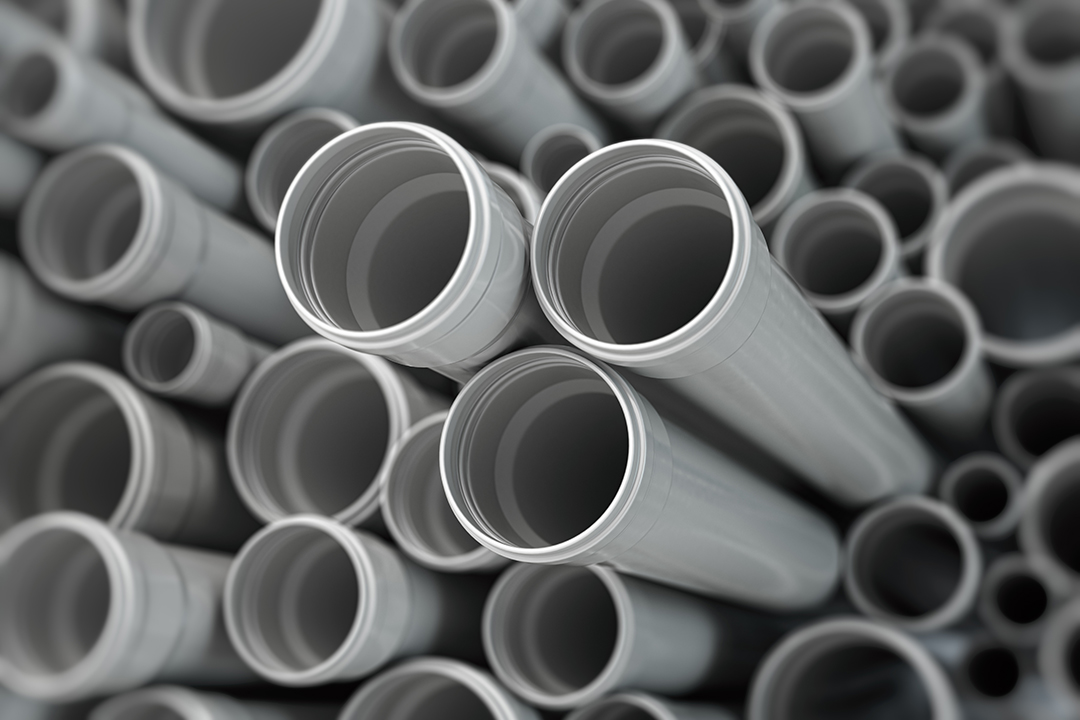High-Density Polyethylene (HDPE) pipes have emerged as a superior alternative to traditional Polyvinyl Chloride (PVC) pipes in many industrial applications. For businesses seeking reliable piping solutions, understanding the advantages of HDPE over PVC can lead to more efficient and cost-effective operations. This comprehensive comparison highlights the key factors that make HDPE pipes the preferred choice for various industrial needs.
Superior Strength and Durability
When examining the differences between PVC and HDPE, one key factor stands out: HDPE pipes boast exceptional strength-to-weight ratios, making them ideal for demanding industrial environments. Unlike PVC, HDPE pipes can withstand significant external pressures and ground movements without compromising structural integrity.
The durability of HDPE pipes is primarily attributed to their resistance to:
- Corrosion;
- Abrasion; and
- Chemical degradation.
While PVC pipes can become brittle over time and are susceptible to cracking, HDPE pipes maintain their structural integrity under harsh conditions. This superior durability significantly impacts the lifespan of the piping system.
| Pipe Material | Typical Lifespan |
| HDPE | 50 to 100 years |
| PVC | 30 to 40 years |
For industries dealing with aggressive chemicals or abrasive materials, the long-term durability of HDPE pipes offers a clear advantage. The ability to maintain performance over extended periods reduces the frequency of system overhauls and replacements, contributing to overall operational efficiency and cost savings.
Unmatched Flexibility
The flexibility of HDPE pipes sets them apart from their PVC counterparts, offering significant advantages in various industrial applications:
- Easier installation around obstacles and curves;
- Reduced need for additional fittings and joints;
- Better adaptation to complex layouts and limited spaces; and
- Improved resistance to ground movements and temperature fluctuations.
HDPE pipes can bend and adapt to various installations without compromising integrity, significantly reducing the risk of leaks. Their superior bend radius allows for sharper curves compared to PVC, enhancing installation versatility.
| Feature | HDPE Pipes | PVC Pipes |
| Flexibility | Highly flexible | Rigid |
| Bend Radius | Sharper curves possible | Limited bending capability |
| Joint Requirements | Fewer joints needed | More joints required |
| Adaptation to Ground Movement | Excellent | Poor |
The practical implications of this flexibility are substantial. In scenarios where pipelines navigate around existing structures or natural obstacles, HDPE pipes can often be installed with fewer joints and fittings. This not only simplifies the installation process but also minimizes potential weak points in the system, enhancing overall reliability and reducing maintenance requirements.
Enhanced Impact Resistance
HDPE pipes exhibit superior impact resistance compared to PVC, offering significant advantages in challenging environments:
| Feature | HDPE Pipes | PVC Pipes |
| Impact Absorption | Excellent | Poor |
| Resistance to Water Hammer and Fatigue | ~2,500 times more resistant | Baseline |
| Brittleness | Low | High |
| Resistance to Cracking Under Stress | High | Low |
The superior impact resistance of HDPE pipes provides several key benefits:
- Ideal for high-traffic areas and locations prone to ground movement.
- Withstands exposure to heavy equipment and vehicle traffic in industrial settings.
- Ensures operational continuity by reducing the risk of pipe damage.
- Provides an additional layer of security in seismically active regions.
- Significantly reduces the risk of leaks or system failures during geological events.
The ability of HDPE pipes to flex and absorb ground movements without breaking is particularly valuable in regions prone to seismic activity or soil subsidence. This characteristic enhances the overall reliability and longevity of piping systems in challenging geological conditions, minimizing the need for repairs and replacements.
Superior Chemical Resistance
HDPE pipes demonstrate exceptional resistance to a wide range of chemicals, surpassing PVC in numerous industrial applications. This characteristic makes HDPE an ideal choice for various industries and applications:
| Feature | HDPE Pipes | PVC Pipes |
| Chemical Inertness | High | Moderate |
| Resistance to Acids and Alkalis | Excellent | Good |
| Long-term Integrity in Chemical Environments | Superior | Average |
| Contamination Risk | Minimal | Higher |
Key advantages of HDPE’s superior chemical resistance:
- Ideal for transporting wastewater, industrial chemicals, and potable water.
- Maintains integrity in environments with corrosive substances.
- Minimizes contamination risks in sensitive applications.
- Extends system lifespan in chemically harsh conditions.
- Ensures purity of transported materials across various industries.
The versatility of HDPE pipes due to their chemical resistance makes them suitable for a wide range of industries, including:
- Oil and gas industries;
- Water treatment facilities;
- Chemical processing industries;
- Mining operations; and
- Food and beverage manufacturing.
By choosing HDPE pipes for applications involving chemical exposure, businesses can ensure longer-lasting, more reliable piping systems that maintain the integrity of their processes and products.
Long-Term Cost-Effectiveness
While HDPE pipes may have a higher initial cost compared to PVC, their long-term benefits often result in significant overall savings:
| Factor | HDPE Pipes | PVC Pipes |
| Initial Cost | Higher | Lower |
| Service Life | Up to 100 years | 30-40 years |
| Maintenance Requirements | Low | Moderate |
| Installation Time | Faster | Slower |
| Friction Losses | Minimal | Higher |
Key factors contributing to HDPE’s long-term cost-effectiveness:
- Extended service life reducing replacement frequency;
- Lower maintenance requirements;
- Smooth interior surface minimizing friction losses and pumping costs;
- Faster and easier installation process;
- Fewer fittings needed during installation; and
- Reduced need for repairs over the system’s life cycle.
Cost savings throughout the HDPE pipe system lifecycle:
- Installation: Reduced labor costs and shorter project timelines.
- Operation: Lower pumping costs due to reduced friction.
- Maintenance: Fewer repairs and less frequent replacements.
- Long-term: Extended service life up to twice that of PVC pipes.
When considering the total cost of ownership, understanding the key differences between HDPE pipe vs PVC pipe helps explain why HDPE pipe systems often prove more economical than PVC alternatives. The combination of durability, low maintenance, and extended service life offsets the higher initial investment, making HDPE pipes a cost-effective choice for long-term industrial applications.
Environmental Considerations
HDPE pipes offer significant environmental advantages over PVC, aligning with sustainability goals and eco-friendly practices:
| Factor | HDPE Pipes | PVC Pipes |
| Recyclability | Highly recyclable | Limited recyclability |
| Carbon Footprint | Lower | Higher |
| Harmful Emissions | Minimal | Potential dioxin release |
| Lifespan | Longer (50-100 years) | Shorter (30-40 years) |
Key environmental benefits of HDPE pipes:
- Fully recyclable material, preserving resources.
- Can be recycled multiple times without losing properties.
- Lower carbon footprint in production and lifecycle.
- No harmful dioxin emissions during production.
- A longer lifespan reduces the frequency of replacements.
- Aligns with circular economy principles.
Impact on sustainability goals:
- Reduces the need for virgin materials in pipe production.
- Minimizes waste generation over time.
- Supports industries in meeting environmental targets.
- Improves overall environmental performance of piping systems.
- Maintains operational efficiency while enhancing sustainability.
By choosing HDPE pipes, businesses can significantly reduce their environmental impact without compromising on performance. The combination of recyclability, a lower carbon footprint, and an extended lifespan makes HDPE pipes an environmentally responsible choice for industrial applications. This aligns with the growing global emphasis on sustainable practices and circular economy principles in industrial operations.
Coastal Resource Group Your HDPE Pipe Solution
At Coastal Resource Group, we pride ourselves on being your go-to provider for HDPE pipes, fittings, and fusion equipment. Our commitment to excellence sets us apart:
- 24/7 availability to meet your urgent needs;
- Fast delivery across Texas and beyond;
- An expert team offering tailored solutions;
- Comprehensive inventory of premium HDPE products; and
- Support for system upgrades and new installations.
When you choose Coastal Resource Group, you’re not just getting products – you’re gaining a partner committed to your success. Our HDPE solutions help you maximize efficiency, reduce costs, and meet environmental goals.
Experience the difference of working with a dedicated industrial supply partner. Let us help you build reliable, high-performance HDPE piping systems that stand the test of time.
Contact us today for a quote and to discover how our HDPE solutions can drive your business forward.


